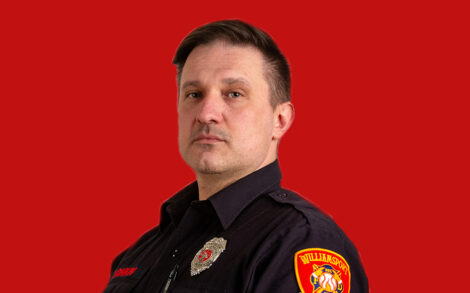Who, and under what circumstances, should someone have a choice?
We all have experienced moments in our lives we’ll remember forever. For me one such moment occurred when my aunt was in the hospital, saying she couldn’t bear it anymore and if she had the physical strength, she’d jump out of the window.
I so much wanted to help her jump.
She died of cancer, and when she was dead, I felt deep sadness. But I also felt something else: happiness and relief – because she finally didn’t have to suffer anymore.
Less than two years later her mother – my grandmother – died of cancer too. My grandmother never suffered loudly, never complained about pain. Like my aunt, I watched her body decline, as she was hooked up to tubes, and when she eventually died, I again was deeply saddened but also happy and relieved her suffering had finally ended.
Whenever I visit their graves, I pass a gravestone with a quote by the Greek writer Nikos Kazantzakis, saying, “I hope for nothing. I fear for nothing. I am free.”
No other words than these have ever captured better what I felt the day my aunt and grand-mother died.
On September 4, Niki Glattauer, first a well-known Austrian journalist, then a teacher and columnist, died. Diagnosed with terminal cancer, he’d applied for assisted suicide. Ten days before his death, he invited two journalists for an interview on his decision. The interview, about an hour long, featuring only him and the two journalists, was authorized by him and published before his death. As you can imagine, airing the interview resulted in a debate on whether or not it should have been published.
Publicly reporting on suicide always comes with the fear of a possible “Werther effect,” i.e., people being “inspired” to copy the suicide portrayed in the media. The term is based on the 1774 novel “The Sorrows of Young Werther” by German writer Johann Wolfgang von Goethe. It’s the story of a young man who deeply falls in love with an engaged woman. She, however, doesn’t return his love. In his despair, he shoots himself. When the novel was published, reports of people mimicking Werther appeared. There’s never been conclusive evidence of a suicide epidemic but as psychiatric research has shown, media coverage on suicide can indeed lead people to killing them-selves.
The media ethicist Claudia Paganini believes the risk of people impulsively copying Glattauer’s suicide is low as his suicide was the result of a legal, planned, and guided process. And while there’s still a risk of having “inspired” some people, they’d have to fulfill stringent requirements to be approved for assisted suicide. Nonetheless, because suicide is such an emotional topic, Paganini believes the media should have never reported on this event in real time, and instead should have allowed some time to pass before publishing the interview. Even better, she says, would have been if Glattauer had published his thoughts in written form. That way, it wouldn’t have felt as if the journalists were trying to profit from attracting a big audience. A report on suicide, she notes further, should never focus on one person only but be embedded in a bigger context by allowing counter voices from palliative medicine and suicide prevention to speak out.
I watched the interview. While I think airing it before his death might have put pressure on him to go through with the suicide, it was a good interview and fine to be published. Despite the suicide being only a few days away, Glattauer didn’t appear scared at all. Having seen family members die of cancer, he’d always known he never wanted to die like them. He wanted to die with dignity, he said, before the pain increased and he became bedridden. He’d talked with his children about it, and since he’d always been open to assisted suicide, they were prepared. He also said he’d just come back from visiting his partner in Thailand for the last time, and wanted to spend the remaining days with his children cooking, watching a movie, and playing cards.
Austrian writer Arthur Schnitzler uses the word “Freitod” instead of “suicide” in his stories. “Freitod” literally means “free death.” I’m not sure it’s the right word as his characters typically consider suicide because of feeling trapped, be it due to existential problems or saving their honor. To me “Freitod” would be the right word in Glattauer’s case. Yes, he did have terminal cancer. But it was his free choice to not want to die like his family members and therefore end his life early.
I wonder why we have the right to live but not the right to die. Some people might argue one’s life lies in God’s hands. Does it really? Modern medicine keeps us alive increasingly longer. If it wasn’t for machines and pills, God would take a lot more people a lot faster.
Of course we want to prevent suicide, and of course palliative care has advanced greatly since my aunt and grand-mother died. But there’ll always be people like Glattauer wanting to choose their death freely. Shouldn’t they have a voice too? Suicide evokes a lot of emotions, stigmata, and shame, and precisely because of that it’s all the more important to openly talk about whether prolonging life under all circumstances is a good idea, or whether it would be more humane to allow a person facing death not to suffer anymore.
Daniela Ribitsch teaches German at Lycoming College.

